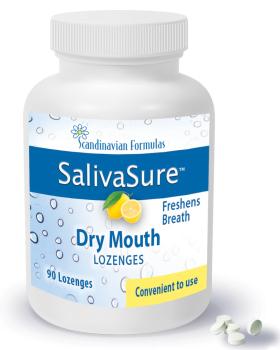How to Lose Weight When You Have Autoimmune Disease

Photo 137657828 © Tero Vesalainen | Dreamstime.com
It’s a Catch 22 –autoimmune disease causes inflammation that brings on weight gain, but maintaining a healthy weight is key to controlling autoimmunity. The good news is you can lose the weight and keep it off – even while you battle autoimmune disease.
Autoimmune Disease & Weight Gain
It’s no secret that obesity and chronic disease go hand in hand – and the 80+ mystery illnesses that are lumped together as “autoimmune” are no exception to this rule. Autoimmune disease is a daily struggle for 1 out of every 5 adults in the US, and a sluggish metabolism comes as part of the package. The effects of a metabolism under toxic stress are progressive and potentially devastating, so what may initially appear as a few extra pounds and diminished energy can develop over time into a much larger problem.
Unfortunately, the fad diets that seem like quick fixes don’t help you in the long run. Often chock full of inflammation-inducing foods, these diets don’t heal – and healing is exactly what you need. Weight loss resistance is largely due to inflammation inflicting damage at the cellular level, and to cell membranes in particular. Sadly, this is an area that has been ignored in health care, including integrative and functional medicine.
In my Radical Metabolism plan, I explain that there are three metabolically active tissues that directly relate to how your body uses energy and stores fat. Each of these three tissues requires a different type of fuel and has specific nutritional requirements for optimal function. Unless each is specifically addressed in your diet, your slim-down may end up in a shutdown. The good news is that the Radical foods that reduce inflammation and fuel your cells also help you achieve a healthy weight.
A Healthy Body Has a Healthy Weight
The side effects of unhealthy weight gain start out the same for all of us – fatigue, joint pain, sleep problems, and diseases like type 2 diabetes – but autoimmune disease can exacerbate all of these, bringing them on more rapidly or with more intensity. Once you are in pain or experiencing any kind of debility with your illness, your ability to prepare even simple meals can be affected, and the weight seems like it just snowballs on itself. Not being able to exercise comfortably can also be a challenge that adds to the propensity to pack on the pounds.
As your autoimmune disease progresses, mobility may become more challenging, and this should be a red flag to you that it’s time to make some lifestyle changes – while you’re still able. A healthy diet should be a high priority – your cells are depending on it. Healthy cells need a healthy environment to thrive in – regardless of what your genes are.
Everything is controlled at the cellular level—appetite, fat burning and fat storage, energy production, hormones, tissue repair, recovery from illness or injury, resistance to disease (including autoimmunity), and even aging itself. Your metabolism controls digestion, getting nutrients into the cell and waste products out. You can thank your metabolism for your body’s ability to detoxify itself.
Metabolism & Diet
Your diet matters because metabolic processes depend upon the nutrients you eat. These nutrients can be broken down to produce energy and critical proteins, such as DNA. Having a toxic metabolism means your DNA may be damaged, cells are not getting all the nutrients they need, or your body has a problem with toxicity—and unfortunately most people with autoimmune disease have all 3 parts of this toxic trio. If detox fails, toxins progressively accumulate. Having a toxic body is a bit like swimming in a pool that’s never had its water changed.
Your body depends on certain nutrients to perform its basic functions, and if you can’t get them, or for some reason your body can’t use them, then systems begin to break down. It’s important to realize that excessive weight gain is just a symptom of a deeper problem—your body’s way of clueing you in that something is wrong at the cellular level. And when you reduce the inflammatory foods in your diet and add in more healing foods, weight loss is a natural side effect of nourishing your body at the cellular level.
Go With Your Gut for Lasting Weight Loss
Lasting weight loss starts with good gut health. You can take all of the weight loss supplements the world has to offer, but unless your digestion is strong enough to break down and absorb what you’re taking, you’re just throwing money down the drain. And when you already have autoimmunity, the deck is already stacked against you when it comes to good digestion.
It starts with your saliva, which is underproduced in many autoimmune disorders. And when saliva levels are low, this causes low stomach acid. If you don’t have enough stomach acid, you can’t absorb iron, calcium, zinc, selenium, protein, vitamin B12, and so much more. This low level of stomach acid also signals a lower production of pancreatic enzymes, furthering hampering the digestion process. Bile production also drops, and did you know autoimmune disorders can be associated with as much as a 75 percent drop in bile production?
5 Radical Rules to Overcome Autoimmune Weight Gain
To overcome autoimmune associated weight gain, you need to get Radical – my Radical Metabolism plan, that is. Each of my 5 Radical Rules gets to the root of toxic weight gain from autoimmunity.
My Radical Rule #1: teaches you all about healthy essential fats like alpha-linolenic acid, which is anti-inflammatory and has been shown in studies to be helpful for autoimmune conditions
Boost bile production with my Radical Rule #2 (hint: bitter foods build better bile) Increase lean muscle mass and fire up your fat-burning metabolism with my Radical Rule #3
Radical Rule #4 teaches you how to repair your gut and get digestion back on track Radical Rule #5 teaches you how to reduce your toxic load and relieve your body of its burden, taking inflammation along with it.
I can’t say it better than what Elisa V. had to say about her Radical Metabolism journey:
“Many of the other excellent programs out there show you how to eat and how to supplement to take care of health issues. They have been very helpful and successful, but at a certain point it just felt like, okay, those issues are gone and I keep up with the program, but I still don’t feel like what I’m told I will feel like, my optimal health.
RM shows you why. You can eat right and exercise and take all the supplements you want, but it will only take you so far if you’re not healing your cells and your gall bladder. RM tells you how to do that. No other program I’ve seen does. Everyone only focuses on the gut.
I’ve learned, you’re body isn’t going to even properly fix that until you have the right oils for your body cells to upload that and without a functioning gall bladder, you can’t fix your cells. So it seems to me that if you’re doing everything right, without fixing your cells, you are sending everything into hiding in your body, because the toxins can’t get out. So the healing is temporary, so when you cheat on your diet, the toxins come creeping out again, until you send them back into hiding.
If we fix our cells and gallbladder/liver, we can actually eliminate these toxins from the body. This is what my understanding is so far in RM. It’s not always what you’re ingesting that hurts your body, it’s also many times what you are not ingesting.”
Ann Louise Gittleman, Ph.D., C.N.S.
Ann Louise Gittleman, PhD, is a New York Times award-winning author of 30 books on detox, health, and healing, including the international bestselling Fat Flush Plan and Zapped! Visit her blog and join her online Fat Flush Community.
Don't Miss a Thing!
Get the latest articles, recipes, and more, when you sign up for the tasteforlife.com newsletter.

